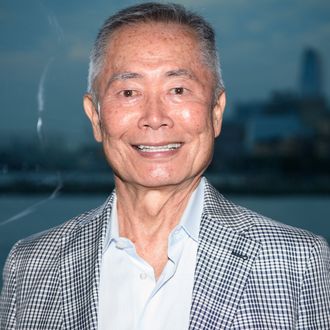
For his latest bizarre un-presidential decree, President-elect Donald Trump tweeted early Tuesday morning that he would imprison or strip away the citizenship of anyone who burns the American flag in protest, an act of intimidation that anyone with reasonable knowledge of the laws of this land has already recognized as blatantly unconstitutional. While it may be easy to laugh off such a proposal for being just that, TrumpÔÇÖs ideas about how heÔÇÖd treat political dissidents as president has unearthed painful memories for those whoÔÇÖve seen such dangerous rhetoric put into practice before. In response to TrumpÔÇÖs tweet, George Takei passionately defended freedom of speech, saying he ÔÇ£pledged allegiance to the flag every morning inside an internment campÔÇØ and, while he would never burn the flag now, heÔÇÖd rather ÔÇ£die to protect the right to do soÔÇØ than see Trump take it away.┬á
In 1942, when Takei was 5 years old, he and his family were forced at gunpoint out of their Los Angeles home and into a tiny horse stable that had been converted into a Japanese-American internment camp. They were later transferred to a camp in Arkansas, where the Takei family lived throughout most of World War II until they were permitted back into Los Angeles. ÔÇ£As I looked past the U.S. flag out the window, the barbed wire of the camp [was] just visible behind it,ÔÇØ Takei once wrote of the cruel irony of pledging allegiance to a country that had imprisoned him. Takei, a longtime activist, has previously spoken out against TrumpÔÇÖs plan to register Muslims and, specifically, a Trump surrogateÔÇÖs frightful suggestion that Japanese internment camps were precedent for having such a registry.


